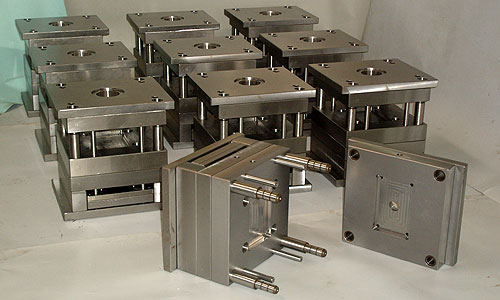In the realm of manufacturing, the selection of mold steel is crucial for ensuring durability and efficiency in production. In Saudi Arabia, the choices available for high-quality mold steel have evolved, catering to diverse industrial sectors. This article delves into the various types of mold steels available in Saudi Arabia, their properties, applications, and considerations for manufacturers looking for sustainable solutions.
Understanding Mold Steel
Mold steel refers to the specific type of steel utilized for manufacturing molds, which can range from plastic injection molds to die casting molds. The primary purpose of mold steel is to withstand high pressure and temperature, ensuring longevity and consistent performance during repeated use.
Types of Mold Steel Available in Saudi Arabia
In Saudi Arabia, manufacturers can choose from several high-quality mold steels. Below are the most prominent types:
- P20 Steel: Known for its excellent machinability and toughness, making it a popular choice for plastic injection molds.
- S7 Steel: Recognized for its resistance to shock and wear, ideal for applications involving high-stress conditions.
- 420 Stainless Steel: Offers great corrosion resistance, suitable for molds that deal with corrosive materials.
- H13 Steel: Excellent thermal stability and hot hardness, making it versatile for high-temperature applications.
- NAK 80: A versatile mold steel that combines wear resistance and polishability, perfect for aesthetic molds.
Key Properties of High-Quality Mold Steel
Selecting the right mold steel involves understanding its properties. Here are some essential characteristics to consider:
| Type of Steel | Toughness | Machinability | Corrosion Resistance | Thermal Stability |
|---|---|---|---|---|
| P20 | High | Good | Moderate | Low |
| S7 | Very High | Good | Low | Moderate |
| 420 Stainless | Moderate | Fair | High | Low |
| H13 | High | Good | Low | Very High |
| NAK 80 | High | Very Good | Moderate | Low |
Factors Influencing the Choice of Mold Steel
When selecting mold steel, several factors come into play:
- Application Requirements: What type of products will the mold be used to produce?
- Cost: Balancing quality with affordability is essential, especially for large projects.
- Supplier Capabilities: The reliability and reputation of the supplier can greatly influence your choice.
- Production Volume: Higher volumes might require more durable mold materials.
- Post-Processing Needs: Some steels may require additional treatments to enhance their properties.
The Manufacturing Landscape in Saudi Arabia
The manufacturing sector in Saudi Arabia is rapidly growing, supported by government initiatives aimed at diversifying the economy. This growth has led to increased demand for high-quality mold steels. Companies are beginning to prioritize local sourcing to reduce lead times and improve supply chain stability.
Quality Assurance and Standards
To ensure the longevity and performance of mold steels, compliance with international standards is vital. In Saudi Arabia, manufacturers should adhere to:
- ISO 9001 for quality management systems.
- ASTM standards for materials properties and testing.
- Local regulations that ensure product safety and environmental considerations.
Conclusion
In conclusion, several options for high-quality mold steel are available in Saudi Arabia, catering to various industrial needs. By understanding the types, properties, and factors influencing the choice of mold steel, manufacturers can make informed decisions that contribute significantly to their production efficiency and product quality. As the manufacturing sector continues to grow, staying informed about the best materials and practices will ensure a competitive edge in the marketplace.

